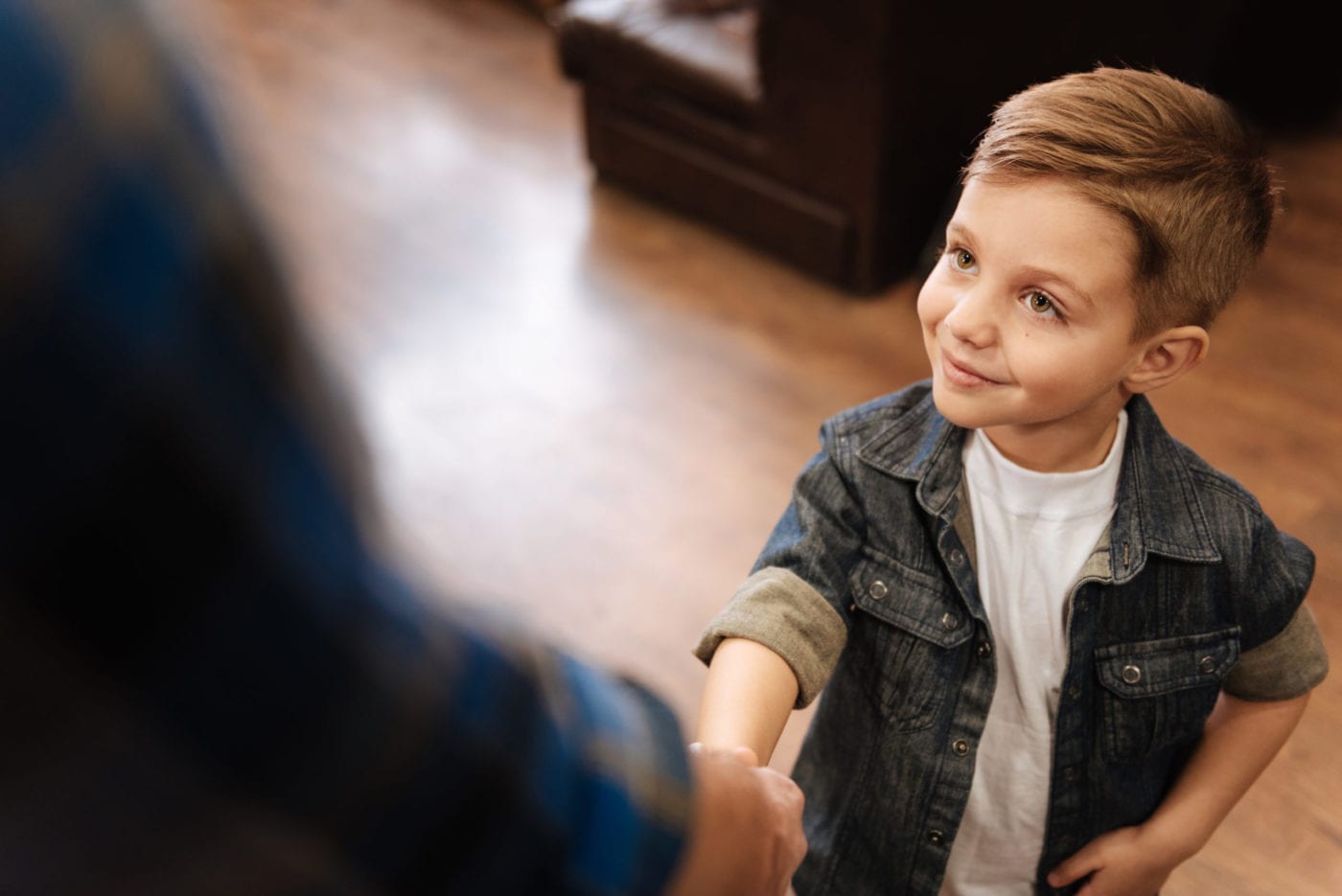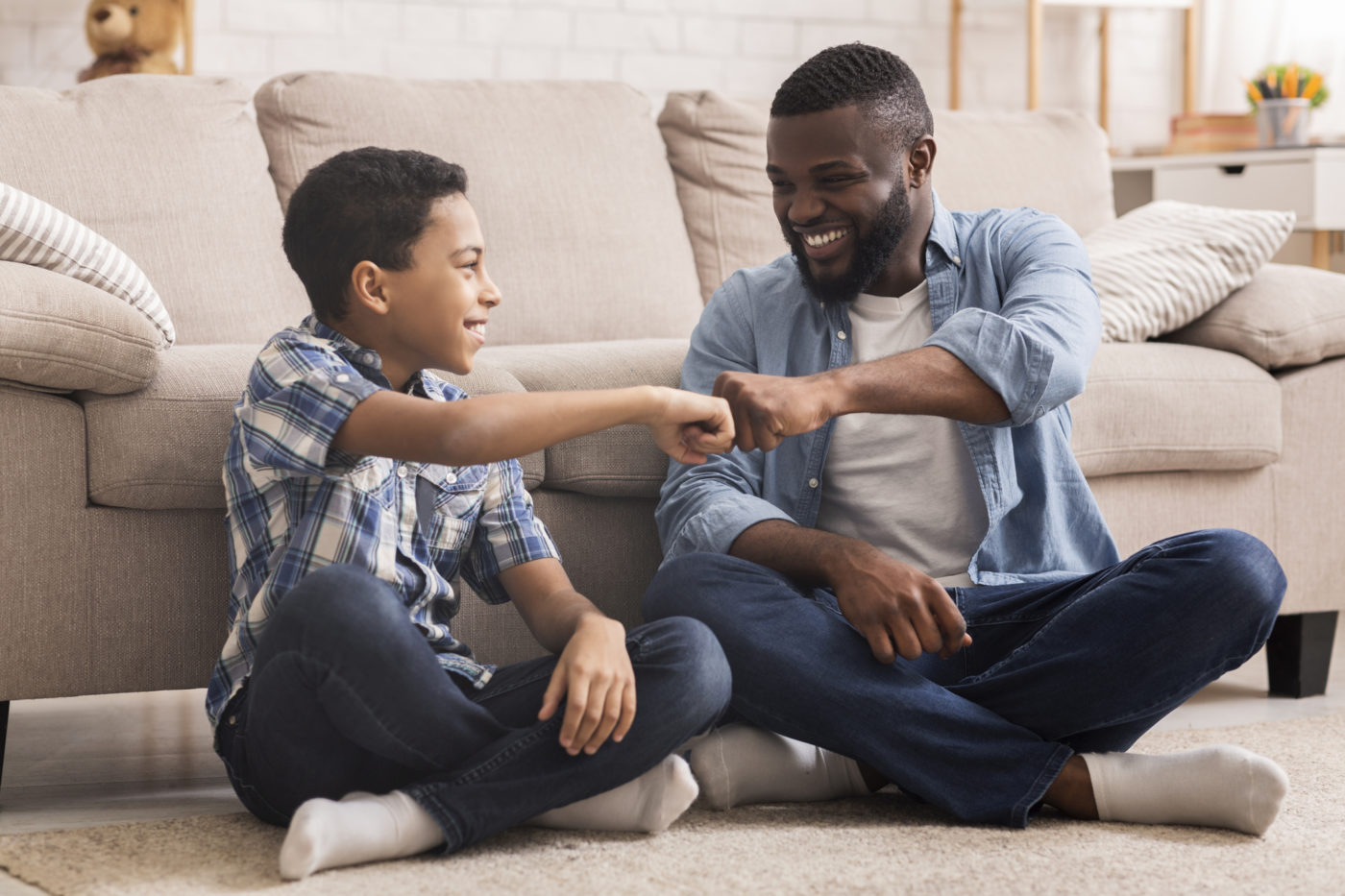At 6-foot-3, I’m taller than most people. My mom is more than a foot shorter than me. I towered over her by the time I was in middle school and remember her telling me many times to sit down when she had something important to share. It wasn’t a mother-in-control thing. It was an I need you to pay attention to this message thing. She knew, especially when I was a teen, that if I failed to look her in the eyes, I would probably miss the message entirely. Years later, now as the parent, I caught myself doing the same thing.
My young son was running around the house like a wild man. He did not care that I had something important to tell him. I called his name. I waved my arms. When I finally got him to stop running, I looked him square in the eyes, and he immediately calmed down. Incorporating good eye contact while speaking or when listening will communicate awareness, interest, and connectivity. But failing to make eye contact can communicate some other messages. Here are 4 things a lack of eye contact reveals about you.
1. You don’t care enough to stop.
We are all busy. We have to drop off kids at school, get to work on time, pick kids up again, and make it to soccer practice. Oh, and we need to cook up something for dinner. It is easy to feel pressed for time, and that leaves us rushing through conversations.
The business training tool SocialSelf calls eye contact “the most important form of non-verbal communication” because it has the greatest impact on how listeners feel about you and what you are saying. When we are always looking ahead at the next thing to accomplish, or the next place to go, we don’t take the time to lock eyes and be present with the people in front of us. Failing to stop and make eye contact tells others your time together is nothing more than another transaction in your day. This makes them less eager to interact with you.
2. You are not interested.
People want to feel like they matter. Breaking eye contact with them is the fastest way to tell them they don’t. A lack of eye contact means you’re not into them.
I met my wife at a Christmas party in college and I remember how I couldn’t stop looking into her eyes. She was fun, beautiful, and charming and definitely captured my attention. I was totally interested in her! I kept looking into her eyes so she knew I wanted to get to know her better. Had I been gazing around the room at other people, I doubt she would have agreed to go on a date.
3. You don’t respect the speaker or listener
The TV doesn’t need your respect. Neither does a smartphone nor computer. But people are different. They need to feel respected. A lack of eye contact when speaking can be seen as offensive. You build and maintain close relationships with people you respect and they understand you care about them by looking them in the eyes. If someone is speaking to you, and your eyes are darting elsewhere, it shows disrespect for them, too.
This reminds me of the story from Mark 10:26–27 when Jesus “looked” at his disciples to tell them something important. He respected the men he was traveling with and teaching. He looked at them and said, “All things are possible with God.” The eye contact drove home the importance of the message.
4. You are not trustworthy
One of the surefire ways to tell if people are lying is to track how frequently they break eye contact. When you can’t keep your eyes from wandering, it tells the person you’re talking with that you can’t be trusted. Conversely, people who maintain eye contact generally can be trusted because they are showing you clear communication is a priority. The Psalmist credits his trust and faith in God to how God “turned his ear to me,” meaning God paid attention to fervent prayers (Psalm 116:1–2). Without solid eye contact, you’ll have a hard time being seen as honest, persuasive, credible, or reliable.
Sound off: Why do you think you avoid making eye contact?











Huddle up with your kids and ask, “Why do you think it’s important to look people in the eyes?”